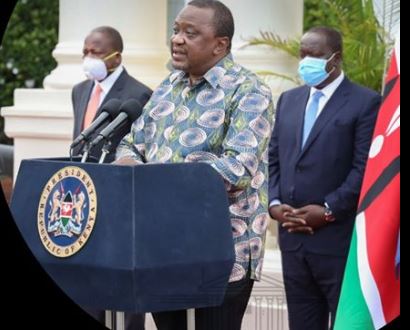×
The Standard e-Paper
Fearless, Trusted News

President Uhuru Kenyatta has announced additional relief measures to cushion Kenyans during the Coronavirus pandemic.
During the fifth presidential briefing, he a National Hygiene Programme, which will commence on Wednesday, April 29. It will create jobs while making the environment healthier.